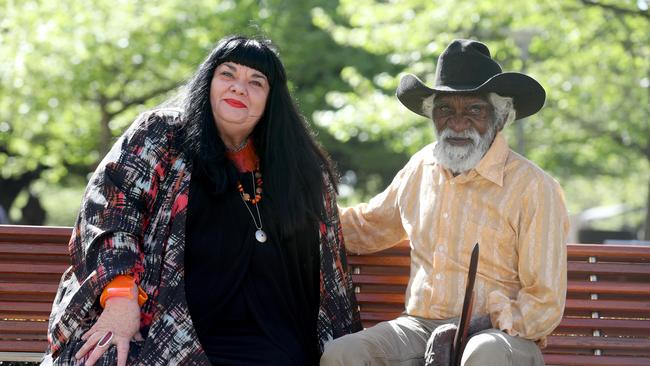Family violence solution on the cards
Fifteen Indigenous communities will help design and impliment their own crime prevention strategies in the next step of the Closing the Gap agreement that prioritises work with Aboriginal and Torres Strait Islander people.

A simple idea to make picture cards for Martu people who could not understand magistrates or police will be developed into a comprehensive crime prevention program in the Pilbara mining town of Newman, where juvenile crime and family violence have become a constant scourge.
Indigenous Australians Minister Linda Burney on Wednesday will announce the Albanese government intends to work with 15 Indigenous communities across Australia that have expressed an interest in designing and implementing justice reinvestment projects to ultimately reduce the number of Aboriginal and Torres Strait Islander adults and juveniles in prison. The $81.5m First Nations Justice Package is being rolled out as part of the recast Closing the Gap agreement signed in 2020. It is underscored by partnerships with Indigenous communities and organisations, rather than by commercial contracts to the private sector.
As part of the new initiative, the government will work with Indigenous communities in Townsville, where a sharp increase in juvenile crime terrified business owners over the past year.
It will also assist Indigenous community members who want to develop crime prevention strategies in Darwin, where in April Ms Burney’s staff tried to save a woman who had allegedly been stabbed in a public act of family violence.
In the West Australian iron ore town of Newman, Kanyirninpa Jukurrpa is an alliance of Martu people who have built a ranger program that creates jobs caring for traditional lands and controlling feral animal numbers.
The organisation began a foray into crime prevention in 2018 with a series of picture cards that helped Martu people with family violence orders to understand they must stay away from the person they were accused of assaulting or, in some cases, the person they accused of assaulting them.
The cards were necessary because, police learned, Martu men and women were consistently being locked up for breaching orders they did not comprehend. It was an unaddressed problem for the first generation of desert people living in the town.
Now, Martu leaders are building on their success with a range of ideas to keep their people out of jail. This includes helping Martu get driver’s licences and learn about the rules of driving so they do not go to jail for an accumulation of driving offences.
However, they see there is much more to do to steer children away from crime and stop adults from reoffending.
Ms Burney will announce the government’s support for the programs across Australia at the Joint Council on Closing the Gap meeting in Darwin.
Ms Burney said that more than 30 years after the Royal Commission into Aboriginal Deaths in Custody, rates of incarceration of Aboriginal and Torres Strait Islander men, women and young people are a national shame.
“Justice reinvestment in places like Bourke, NSW has proven to be effective in reducing crime and keeping adults and young people out of custody,” she said.
“First Nations-led organisations understand the needs of their communities best and I’m pleased to see they are at the forefront of rolling out this readiness support.”
Catherine Liddle, deputy leader of the coalition of Indigenous organisations working with governments on Closing the Gap, believes the programs work when they involve locals who understand their communities.




To join the conversation, please log in. Don't have an account? Register
Join the conversation, you are commenting as Logout